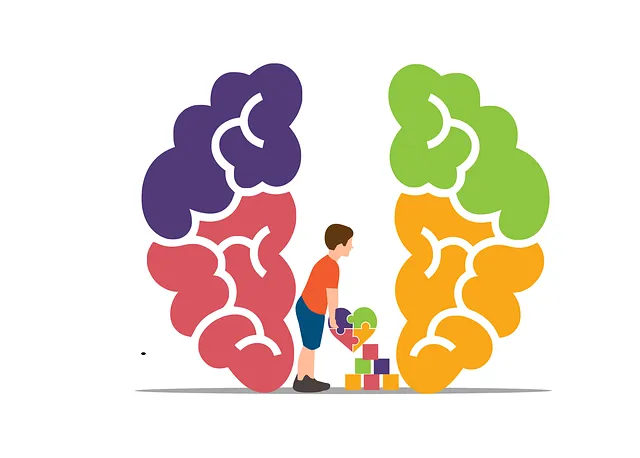In today's digital era, mental wellness coaching programs are gaining popularity as a holistic alternative to traditional therapy, addressing the growing need for accessible care, especially highlighted in positive Kaiser Permanente mental health center reviews Boulder. These programs focus on building resilience, self-awareness, and communication skills, empowering individuals to manage their mental health effectively. Kaiser Permanente Boulder, a highly regarded mental health center, employs a holistic approach combining medical, behavioral, and social aspects, leveraging technology for remote support and fostering open community dialogue. Implementing successful coaching programs requires structured integration of evidence-based practices, regular evaluation using client feedback and metrics, and continuous improvement based on both quantitative and qualitative data, as evidenced by the center's reviews.
In today’s fast-paced world, mental wellness is a paramount concern. This is especially true within corporate settings where stress and burnout are prevalent. Mental wellness coaching programs offer a promising solution. This article explores the growing need for such initiatives, drawing insights from a successful case study at Kaiser Permanente Boulder, renowned for its mental health center reviews highlighting comprehensive support systems. We also delve into effective implementation and evaluation strategies to ensure these programs thrive, fostering healthier workplaces.
- Understanding the Need for Mental Wellness Coaching Programs
- Designing Effective Mental Health Support Systems: A Case Study of Kaiser Permanente Boulder
- Implementation and Evaluation Strategies for Success in Mental Wellness Coaching
Understanding the Need for Mental Wellness Coaching Programs

In today’s fast-paced world, mental wellness is an increasingly important aspect of overall health and well-being. This need has led to a growing demand for specialized coaching programs that cater to various aspects of mental health. Similar to the renowned Kaiser Permanente mental health center reviews in Boulder, which highlight the importance of accessible and quality care, these coaching initiatives aim to bridge the gap between traditional therapy and personal growth. By offering tailored support, they empower individuals to manage their mental health effectively.
The development of mental wellness coaching programs is crucial, especially with the rising recognition of mental health issues among all age groups. These programs focus on enhancing resilience, self-awareness, and communication strategies—essential tools for maintaining good mental health. Moreover, they contribute to risk management planning for mental health professionals by providing alternative interventions that complement existing therapeutic practices, ultimately fostering a healthier and more supportive environment for both professionals and clients.
Designing Effective Mental Health Support Systems: A Case Study of Kaiser Permanente Boulder

At Kaiser Permanente Boulder, a leading mental health center renowned for its comprehensive services, designing effective support systems involves a holistic approach to mental wellness coaching. The program emphasizes not just treating symptoms but fostering inner strength development and promoting positive thinking among individuals. This strategy is evident in their integrated care models that combine medical, behavioral, and social aspects, reflecting the latest research on stress management techniques.
By reviewing Kaiser Permanente Boulder’s practices, we can glean valuable insights into creating impactful coaching programs. Their success lies in tailoring interventions to individual needs, leveraging technology for remote support, and fostering a community-oriented approach that encourages open dialogue. These innovations not only enhance accessibility but also contribute to the overall well-being of individuals seeking mental health services, as evidenced by positive feedback from Kaiser Permanente mental health center reviews.
Implementation and Evaluation Strategies for Success in Mental Wellness Coaching

Implementing a mental wellness coaching program requires a structured approach to ensure its success and effectiveness. One key strategy is to integrate evidence-based practices that have been backed by research, such as Mood Management techniques and Resilience Building exercises, into the coaching curriculum. This ensures that clients receive guidance aligned with scientific understanding of mental health improvement. Regular evaluation of the program’s impact is equally vital. By utilizing metrics like client satisfaction surveys, progress tracking tools, and qualitative feedback mechanisms, coaches can gauge the effectiveness of their interventions. For instance, a Kaiser Permanente mental health center in Boulder might assess improvements in emotional well-being promotion techniques through pre-post assessments, allowing for data-driven adjustments to better serve clients’ needs.
Additionally, fostering an environment of open communication encourages clients to share their experiences and challenges. This feedback loop enables coaches to tailor their approaches, ensuring the program remains relevant and impactful. Continuous improvement cycles, informed by both quantitative data and qualitative insights, are essential for sustaining the program’s success over time. Incorporating these evaluation strategies not only enhances client outcomes but also strengthens the overall reputation of mental wellness coaching initiatives, as demonstrated through positive Kaiser Permanente mental health center reviews.
Mental wellness coaching programs, as demonstrated by Kaiser Permanente’s successful initiative in Boulder, are vital tools in enhancing community mental health support. By combining personalized coaching with accessible resources, these programs can significantly improve individual well-being and reduce the burden on traditional healthcare systems. The case study highlights effective strategies, including tailored interventions and continuous evaluation, that can be replicated to foster healthier communities. Integrating mental wellness coaching into everyday life, as seen in Kaiser Permanente mental health center reviews Boulder, holds promise for a more inclusive and supportive society, where mental health is prioritized alongside physical well-being.






